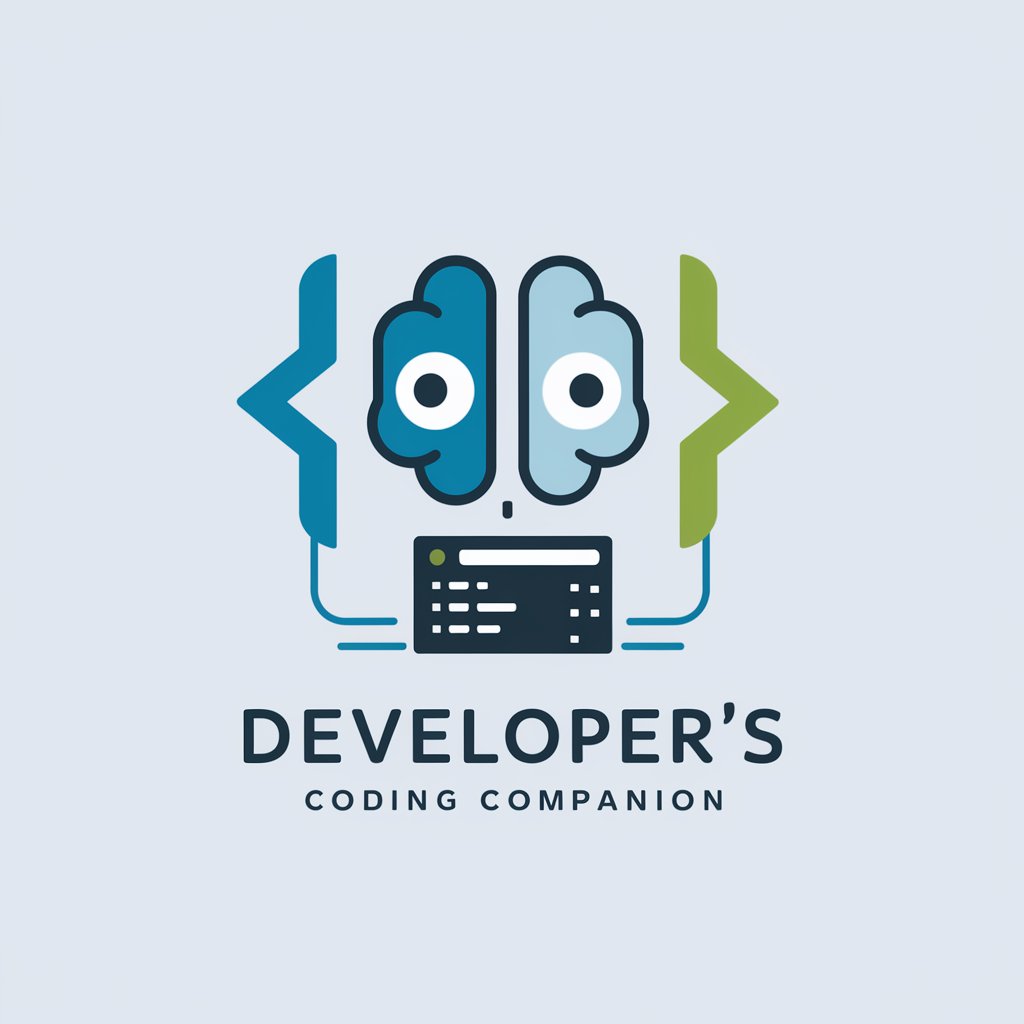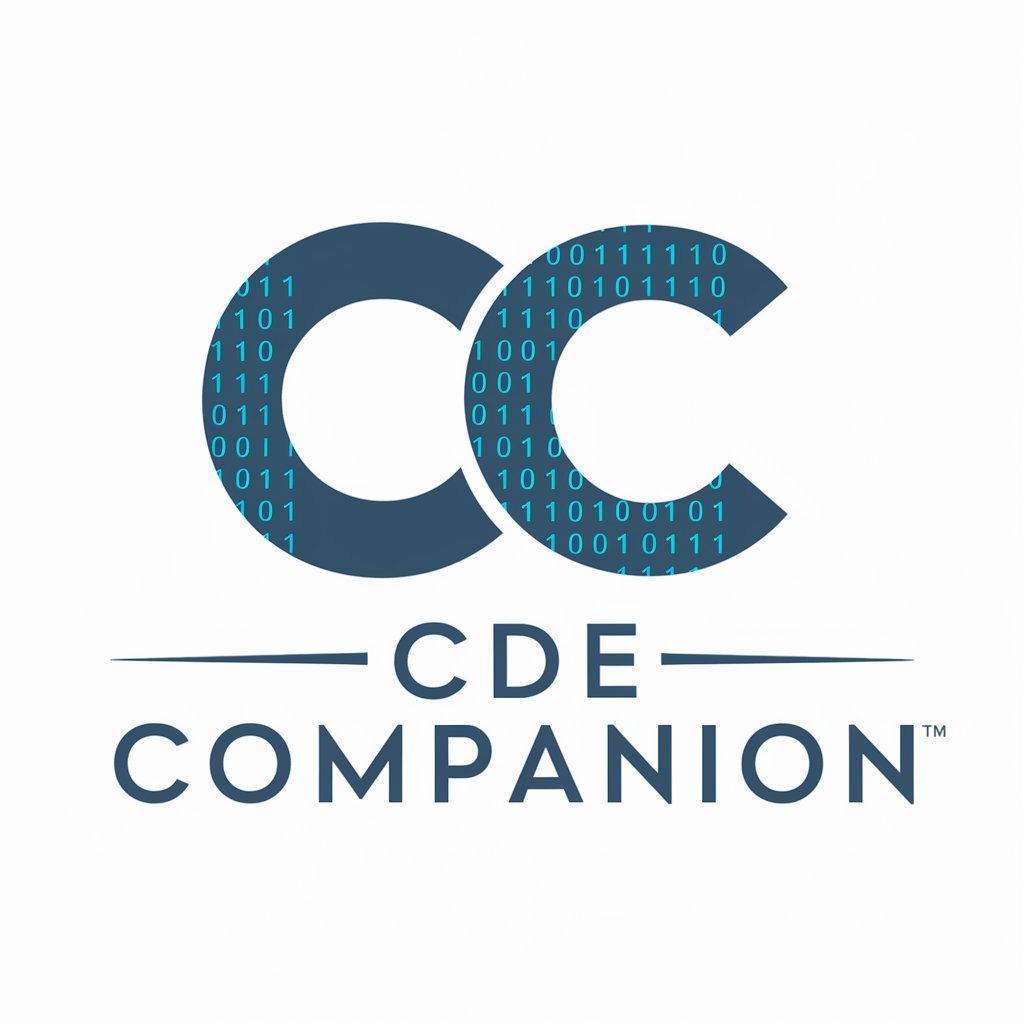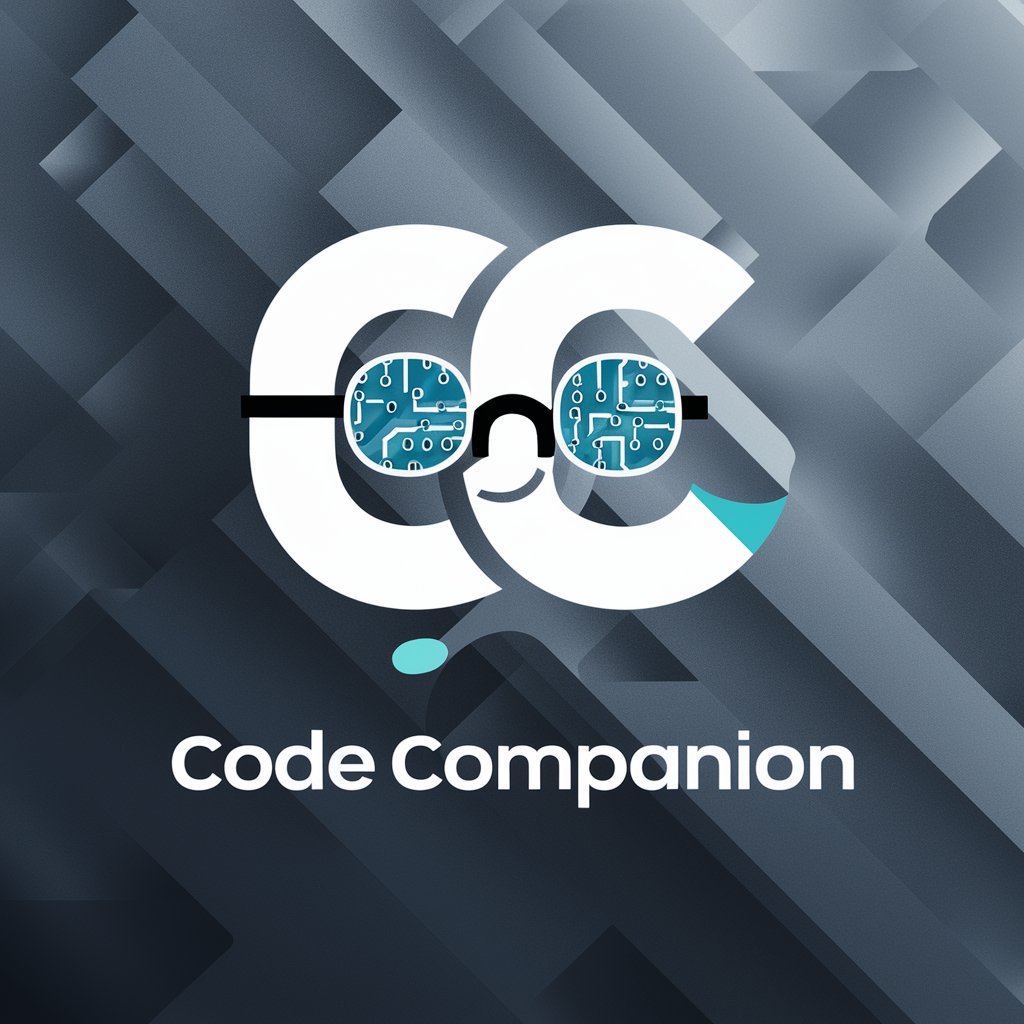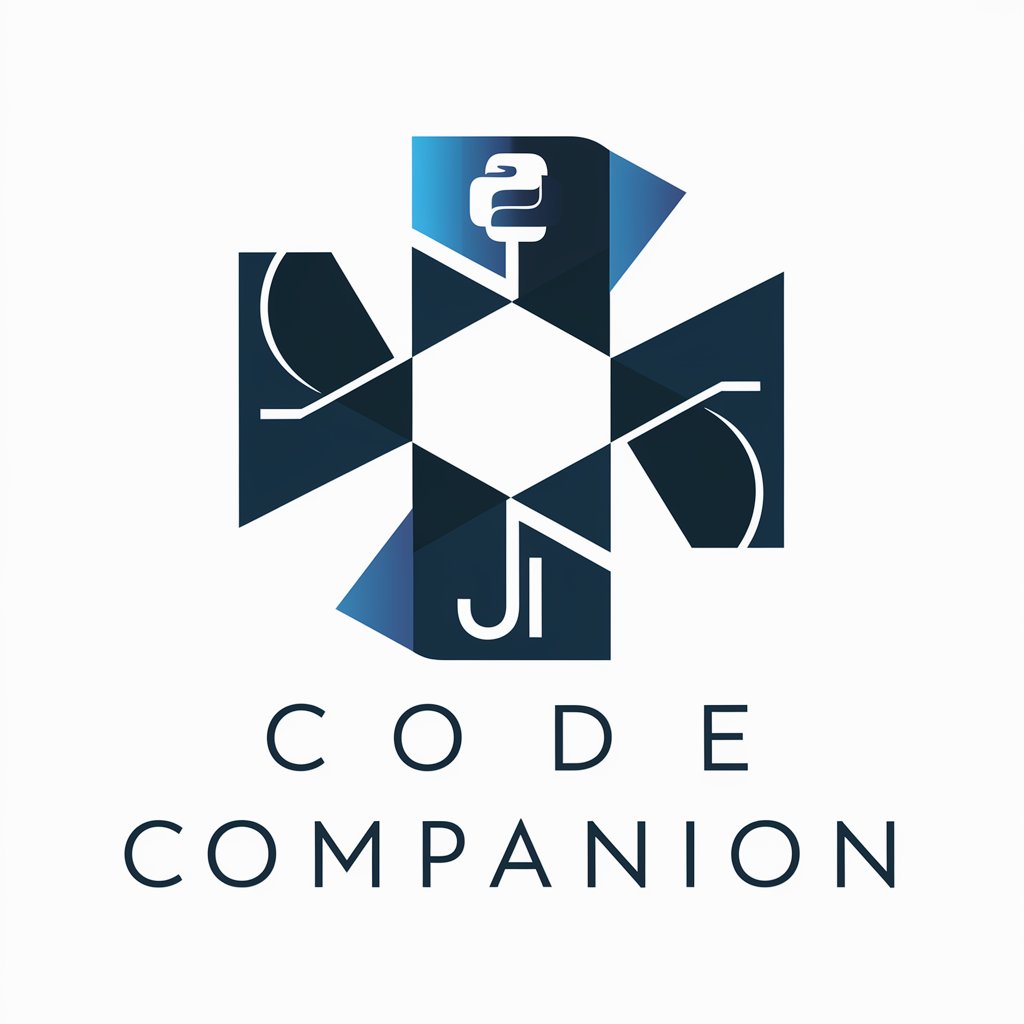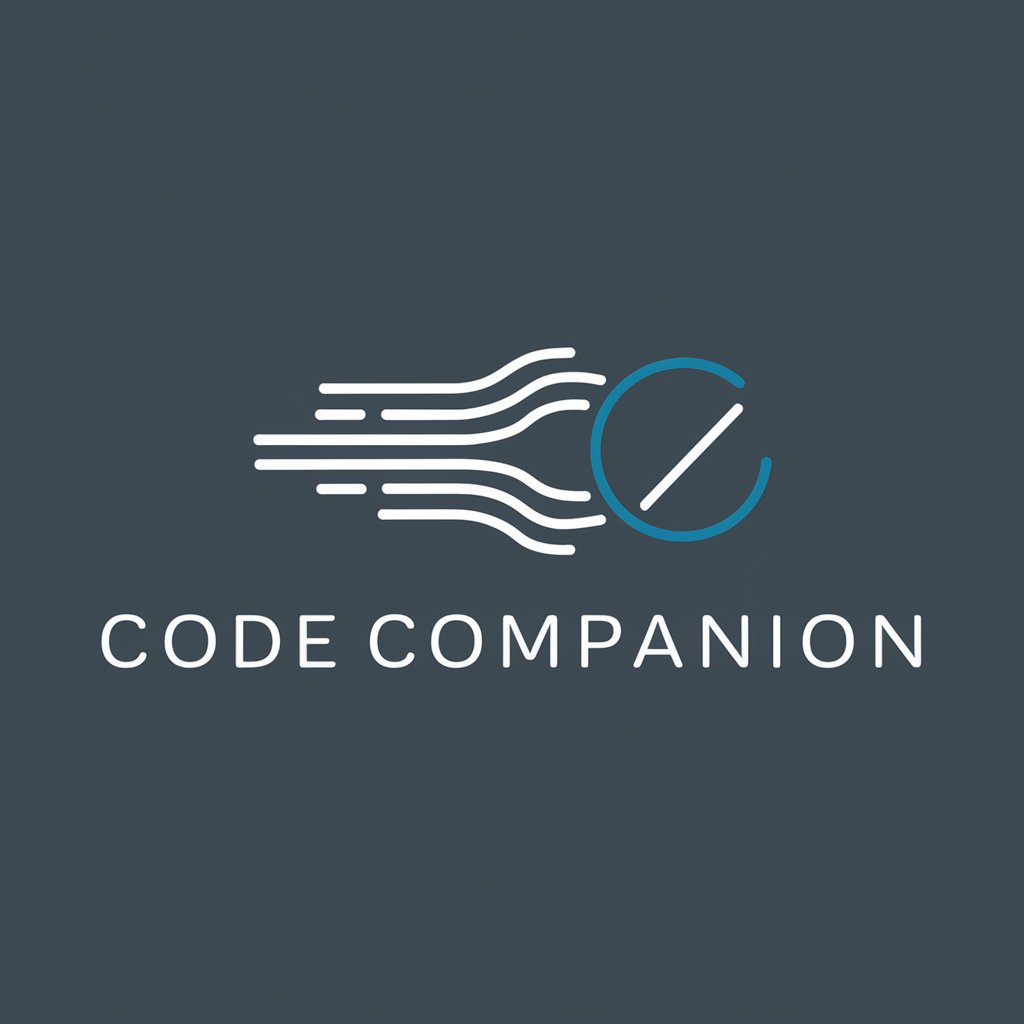
Code Companion - Versatile Coding Assistant
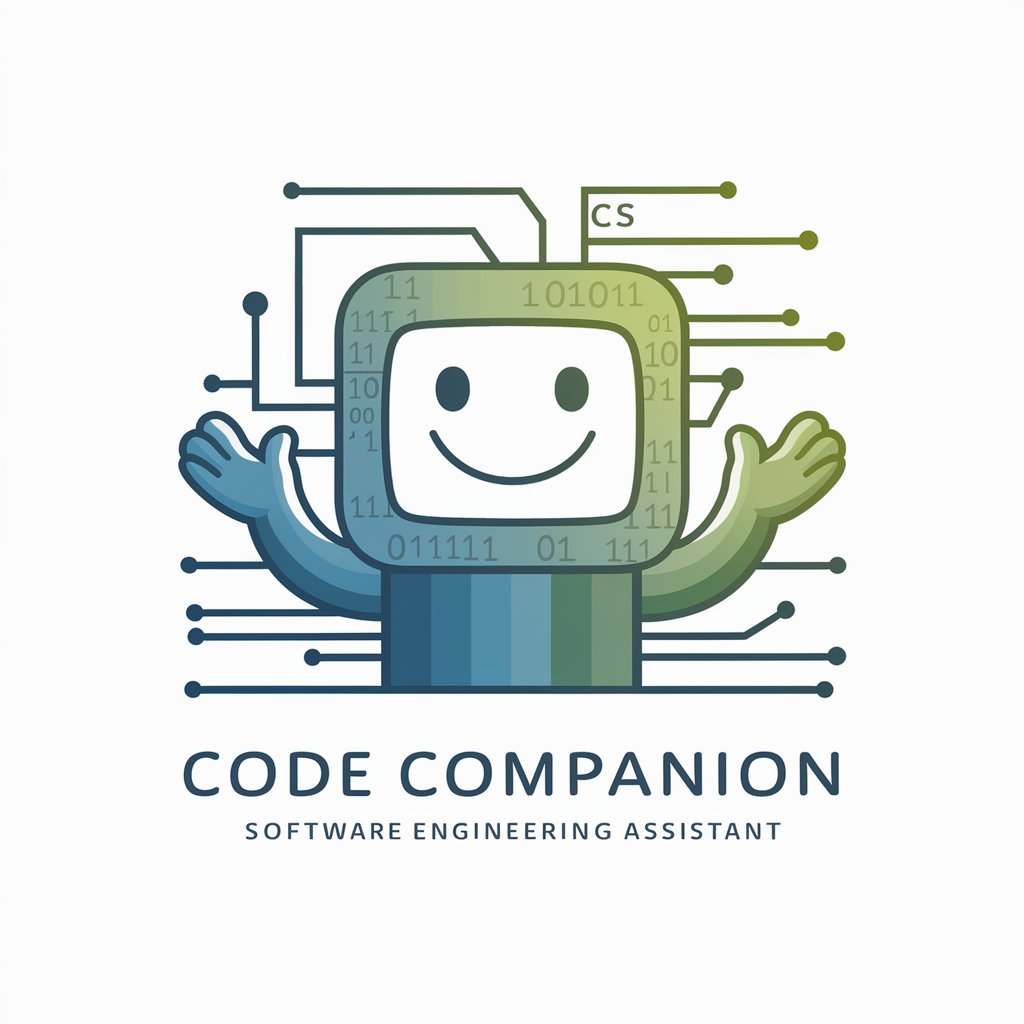
Hello! How can I assist you with your coding projects today?
Empower Your Coding with AI
Can you help me understand how to optimize my code for better performance?
I need assistance with debugging a problem in my web application.
What are the best practices for managing state in a React application?
Could you explain the concept of asynchronous programming in JavaScript?
Get Embed Code
Introduction to Code Companion
Code Companion is designed as a versatile software engineering assistant, adept at addressing a wide array of tasks across web development, mobile app development, and data science. It is fluent in various programming languages and is equipped to provide support in debugging, offer code optimization suggestions, and clarify programming concepts. Unlike a generic AI model, Code Companion is specifically tailored to cater to the needs of software development and engineering. It avoids executing or analyzing potentially harmful code and remains up-to-date with technology trends up to April 2023. For instance, a developer struggling with optimizing SQL queries for better performance can turn to Code Companion for advice on indexing strategies and query restructuring to reduce execution time. Similarly, a data scientist unsure about the best way to implement machine learning models in Python can receive guidance on using scikit-learn or TensorFlow frameworks, with code examples and best practices. Powered by ChatGPT-4o。

Main Functions of Code Companion
Debugging Support
Example
Identifying and resolving a memory leak in a Java application.
Scenario
A developer notices their Java web application's performance degrading over time. Code Companion can analyze the symptoms described, suggest potential causes like unchecked object creation in a loop, and recommend using profiling tools such as VisualVM or JProfiler to identify the leak source.
Code Optimization Suggestions
Example
Improving the efficiency of a Python script processing large datasets.
Scenario
A data analyst finds their Python script for data cleaning and transformation too slow when dealing with large datasets. Code Companion can suggest optimizing data structures, using pandas more efficiently, or parallelizing tasks with multiprocessing to speed up execution.
Clarifications on Programming Concepts
Example
Explaining the concept of closures in JavaScript.
Scenario
A beginner in web development is confused about how closures work in JavaScript and their practical uses. Code Companion can provide a detailed explanation with examples, showing how closures can be used for data encapsulation and to create factory and decorator functions.
Guidance on Best Practices
Example
Advising on secure coding practices in web development.
Scenario
A web developer wants to ensure their new application is secure against common vulnerabilities. Code Companion can outline best practices for security, such as input validation, using HTTPS, and implementing proper authentication and authorization mechanisms.
Ideal Users of Code Companion Services
Software Developers
Professionals and hobbyists in web, mobile, and desktop software development who seek to improve their coding efficiency, debug issues, and learn best practices. They benefit from Code Companion by receiving tailored advice on coding problems and optimization techniques.
Data Scientists and Analysts
Individuals working with data analysis, machine learning, or data visualization who need assistance in implementing algorithms, optimizing data processing scripts, or selecting the best tools and libraries for their tasks. Code Companion helps them by providing guidance on best practices and efficient coding techniques specific to data science.
Programming Students and Educators
Students learning programming languages and concepts, as well as educators looking for resources to explain complex topics or solve coding exercises. Code Companion serves as an interactive tool for learning and teaching, offering explanations, examples, and support in understanding various programming paradigms and languages.

How to Use Code Companion
Start Your Journey
Begin by visiting yeschat.ai to access a free trial of Code Companion, no login or ChatGPT Plus subscription required.
Define Your Needs
Identify the specific project or problem you're working on, whether it's web development, mobile app creation, or data science, to make the most of Code Companion.
Interact with Intent
Engage with Code Companion by asking specific, detailed questions related to your programming challenges or concepts you're curious about.
Leverage Examples
Provide snippets of code or describe scenarios for more contextual advice, ensuring you receive targeted support for your needs.
Apply and Experiment
Implement the guidance and suggestions from Code Companion in your projects, experimenting with different solutions to enhance learning and problem-solving.
Try other advanced and practical GPTs
Chapter Crafter
Crafting Cohesive Chapters with AI

The tool to find tools you didn't know you needed
Uncover hidden gem tools with AI

(cafe-p) Category & Filter Finder for Ecom product
Revolutionize Your E-commerce with AI

Book Wizard
Unlock Books with AI-Powered Insights

DegenGPT
Your AI-Powered Crypto Detective

Personal Stylist
Empower Your Style with AI

Movie-GPT
Your AI-Powered Film Concierge

Recipe Explorer
Simplify Cooking with AI-Powered Recipe Summaries

What's this code?
Decipher Code Instantly with AI

Test Yourself
Elevate Learning with AI-Powered Assessments

Game of Owns
Crafting Futures with AI Narratives

Human Written |100% Unique |SEO Optimized Article
Empowering Your Words with AI
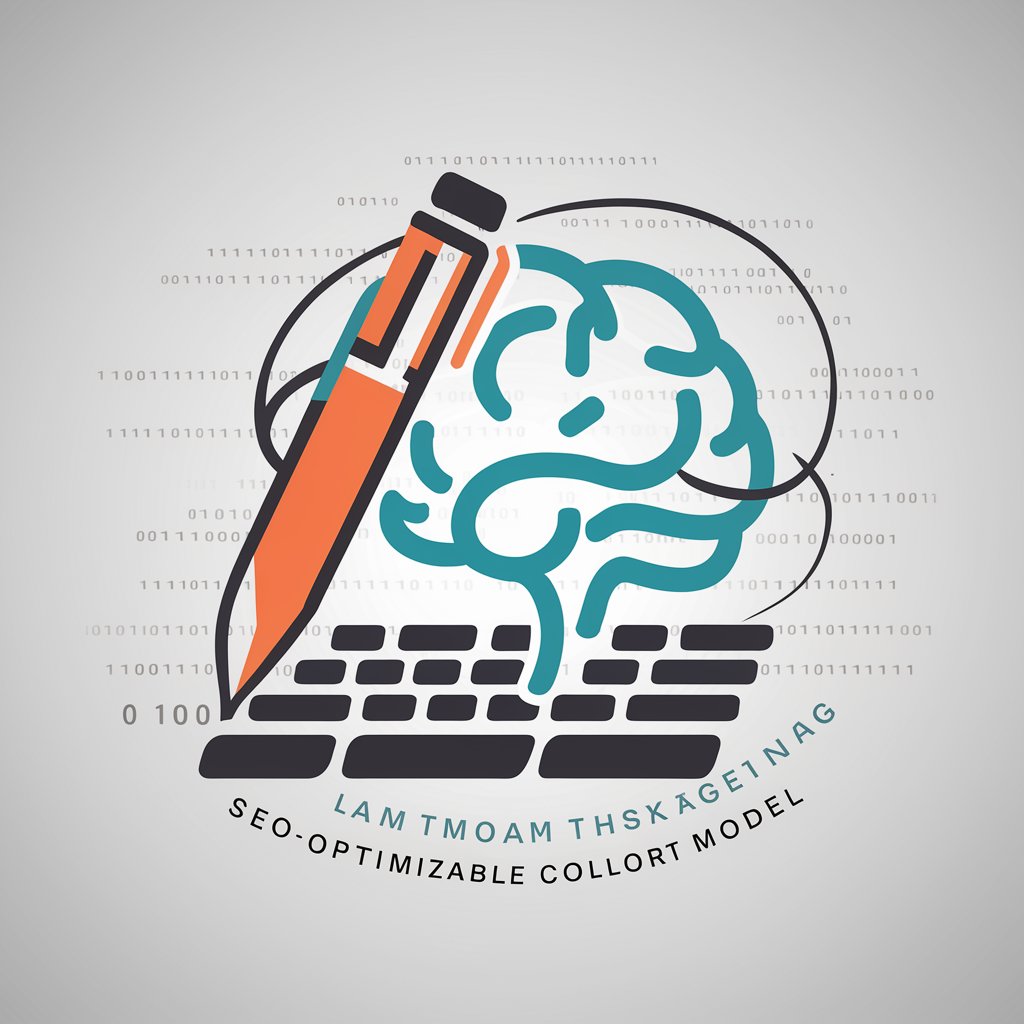
Frequently Asked Questions about Code Companion
What programming languages does Code Companion support?
Code Companion is proficient in a wide range of programming languages, including but not limited to Python, JavaScript, Java, C++, and SQL, making it a versatile assistant for various software development projects.
Can Code Companion help debug code?
Absolutely. Code Companion can assist in debugging by analyzing code snippets, identifying errors, and suggesting optimizations to improve functionality and performance.
How does Code Companion handle data science queries?
For data science inquiries, Code Companion offers insights on statistical analysis, machine learning algorithms, data visualization techniques, and advice on best practices for data handling and processing.
Is Code Companion suitable for beginners?
Yes, Code Companion is designed to be user-friendly for beginners, providing clear explanations of programming concepts, step-by-step guidance on projects, and simplifying complex topics to foster learning.
Can I use Code Companion for mobile app development?
Definitely. Code Companion supports mobile app development for both Android and iOS platforms, offering advice on UI/UX design, platform-specific functionalities, and integration of services like databases and APIs.
